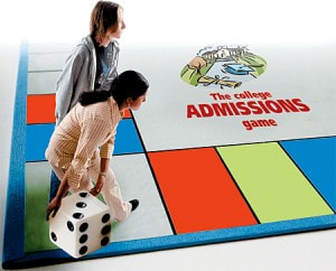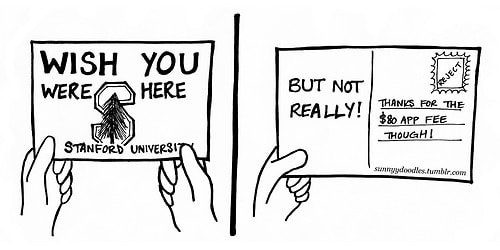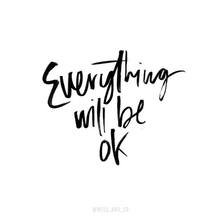How College Admissions Actually Works

Collegevine is one of the student/college admissions blogs that I featured on my post “My Favorite Student/College/Productivity Blogs” (which you can read here). Along with having a blog, one of their most popular services is offering college admissions consulting on the entirety of the admissions and application process for high school seniors. They walk you through the entire process, from picking a list of schools to apply to based on their fancy software to ironing out the kinks in your college specific essays. (I personally am way against paying for any sort of help on anything - including SAT and college apps - but if you’re interested in their program, click here.)
This week, I had the opportunity to talk to a couple members of their team, Greg Eibell (the College Admissions Program Director) and Johan Zhang (the CEO and Founder). Both of them answered a lot of my questions concerning college admissions, and I decided to compile all the information into one post, because, sharing is caring, amiright?
This week, I had the opportunity to talk to a couple members of their team, Greg Eibell (the College Admissions Program Director) and Johan Zhang (the CEO and Founder). Both of them answered a lot of my questions concerning college admissions, and I decided to compile all the information into one post, because, sharing is caring, amiright?
What I Wish I Knew Before I Applied to College

Guess what, guys? I finally finished my college apps!! (Yayyyyyy).
After six arduous months of drafting essays, writing activity descriptions, and getting those letters of recommendation in time, it is all finally over. I’ve pressed submit on my final application in the Common App and wrote my last scholarship essay. (Okay, so technically I still have interviews and whatnot left, but those barely count.)
But now that the process is over, I realize that there were quite a lot of things that I wasn’t expecting or didn’t take into account when first starting to plan out my college application process. So in order to make sure you don’t make the same mistakes I did, here are the things I wish I knew before I applied to college.
After six arduous months of drafting essays, writing activity descriptions, and getting those letters of recommendation in time, it is all finally over. I’ve pressed submit on my final application in the Common App and wrote my last scholarship essay. (Okay, so technically I still have interviews and whatnot left, but those barely count.)
But now that the process is over, I realize that there were quite a lot of things that I wasn’t expecting or didn’t take into account when first starting to plan out my college application process. So in order to make sure you don’t make the same mistakes I did, here are the things I wish I knew before I applied to college.
10 Step Guide to College (Re)Search

The biggest part of applying to colleges (besides those excruciating 3 months of waiting for acceptances), is actually doing the research on colleges you’re thinking of applying to. There are almost 4,000 institutions of higher learning in the United States, and I know for fact you will need help narrowing those down (unless of course, you’re applying to all four thousand, which in case, wow, good luck with those essays). But actually doing the research can be so boringgg and time consuminggg and stressful.
So as a somewhat general guide/timeline, I’ve put together all the resources I used and steps I took to compile my (still-changing) final college application list.
So as a somewhat general guide/timeline, I’ve put together all the resources I used and steps I took to compile my (still-changing) final college application list.
A Journey Down the Yellow Brick Road (AKA The Common App)

Just like Dorothy and Toto, let’s take the long winding yellow brick road down to the Emerald City, where hopefully the Wizards of Oz known as college admissions officers will grant our wish to take us back home (to Princeton University).
I finished my Common App (mostly) a couple weeks ago, (I know, I did it really early, overachiever, blah blah blah) and thought it’d be helpful to share my experience filling it out, along with things I found trouble with or took me some time to understand.
This is how I filled out my Common App, and features screenshots from my account and application. Some of the pics have my info, some don’t, depending on if I remembered to take the screenshot before I filled it out or not (whoops XD). I’ll also be going through what I decided to write in most of the sections and how I determined my wording and small decisions like that.
I finished my Common App (mostly) a couple weeks ago, (I know, I did it really early, overachiever, blah blah blah) and thought it’d be helpful to share my experience filling it out, along with things I found trouble with or took me some time to understand.
This is how I filled out my Common App, and features screenshots from my account and application. Some of the pics have my info, some don’t, depending on if I remembered to take the screenshot before I filled it out or not (whoops XD). I’ll also be going through what I decided to write in most of the sections and how I determined my wording and small decisions like that.
How I Saved Hundreds of Dollars on My College Applications
 Via CollegeBoard
Via CollegeBoard
A lot of you know that college is expensive. That’s no secret. With tuitions approaching 70k for some private universities, we’re all struggling to find ways to make that cost a little cheaper - whether it be through loans or scholarships.
But a lot of people forget that the process of applying to college itself, the part where you write essays baring your souls and work on getting the best grades and standardized test scores, costs so much too. The average application fee cost is almost $38, and private and elite schools have even higher fees (Stanford’s is $90!). And the application fee is only the tip of the iceberg. Don’t forget about the amount of money it takes to send your test scores (which you can read more about here) or to send your CSS profile for financial aid eligibility (yeah, it costs money to ask for money).
Altogether, each college can cost around $100 to apply, and if you’re applying to 10 colleges, that’s already $1000. Yup, that’s expensive.
But a lot of people forget that the process of applying to college itself, the part where you write essays baring your souls and work on getting the best grades and standardized test scores, costs so much too. The average application fee cost is almost $38, and private and elite schools have even higher fees (Stanford’s is $90!). And the application fee is only the tip of the iceberg. Don’t forget about the amount of money it takes to send your test scores (which you can read more about here) or to send your CSS profile for financial aid eligibility (yeah, it costs money to ask for money).
Altogether, each college can cost around $100 to apply, and if you’re applying to 10 colleges, that’s already $1000. Yup, that’s expensive.
Deadlines to Keep in Mind When Applying to College
 Via The Insider
Via The Insider
When you get lost in the college applications process, it’s so easy to forget about the little things - like sending SAT scores or the CSS profile - while you’re focusing on writing a stellar essay or picking which colleges to apply to.
The absolute worst thing that can happen is you write an absolutely amazing personal statement, craft wonderful descriptions for your activities, work for years for perfect standardized test scores, apply to your dream university… and figure out you didn’t send your SAT scores on time and your application was automatically rejected.
Yeah…
Let’s make sure that doesn’t happen - here’s a handy-dandy guide on some important timelines and deadlines to keep in mind when applying to college to make sure you avoid apocalyptic scenarios.
The absolute worst thing that can happen is you write an absolutely amazing personal statement, craft wonderful descriptions for your activities, work for years for perfect standardized test scores, apply to your dream university… and figure out you didn’t send your SAT scores on time and your application was automatically rejected.
Yeah…
Let’s make sure that doesn’t happen - here’s a handy-dandy guide on some important timelines and deadlines to keep in mind when applying to college to make sure you avoid apocalyptic scenarios.
Early Action and Early Decision (And What They Mean)
 Via Plan For College
Via Plan For College
A few of you may know (at least the seniors that are reading this), that the early decision (ED) and early action (EA) deadlines just passed, most of them being on November 1st.
And I can speak for all us seniors when I say “Hallelujah!” - at least one thing is over. But for the rest of you who are confused as to what applying early to college might mean, here’s a quick rundown of what it is and what it means in terms of both your application process and admission chances. (And no, applying early is not always a binding decision!)
And I can speak for all us seniors when I say “Hallelujah!” - at least one thing is over. But for the rest of you who are confused as to what applying early to college might mean, here’s a quick rundown of what it is and what it means in terms of both your application process and admission chances. (And no, applying early is not always a binding decision!)
How To Properly Communicate with Admissions Counselors
 Via How Stuff Works
Via How Stuff Works
Everyone knows that after an interview with an admissions counselor, you have to send a thank-you note, email or snail-mail. (And if you didn’t know, well, there you go, now you know.) But what about beyond that? Is it okay to email them with general questions you have about the college admissions process? What about if you just want to say hi and you’re excited about the university? Or if you have any questions regarding visiting or interviewing or the campus layout?
Yes. The answer is yes.
Remember, a college admissions officer is there for the students. They will always answer your questions and if they can’t, they’ll direct you to someone who can. Their entire job is to both attract students to their university and choose who will become the next members of the incoming class.
So with that in mind, let’s talk about communication.
Yes. The answer is yes.
Remember, a college admissions officer is there for the students. They will always answer your questions and if they can’t, they’ll direct you to someone who can. Their entire job is to both attract students to their university and choose who will become the next members of the incoming class.
So with that in mind, let’s talk about communication.
50 Questions to Ask During Campus Tours
 Via Campus Visit Experts
Via Campus Visit Experts
We’ve all been there. (Or at least, most of us will be eventually.) Awkwardly standing there, clutching whatever college information pamphlets they handed out at the beginning of the information session and tour, riding out the awkward silence when your tour guide asks “Do you guys have any questions?” at the end of every stop. And you know you have a question. Everyone does. But you never ask.
Well, grow a pair and ask! This might be the only opportunity you have to interact with current students and take their experiences and perspectives about the university into consideration, both in deciding to apply and to attend.
Well, grow a pair and ask! This might be the only opportunity you have to interact with current students and take their experiences and perspectives about the university into consideration, both in deciding to apply and to attend.
PSA: Everything will be Alright, Seniors

Well, it is over. The process that started more than one year ago has definitively come to a close. And oh man oh man what a process it was.
And of course, I’m talking about getting my license. (JK that took like 2+ years lol.)
I’m talking about the college application process.
It’s been 3 weeks since I started college, (give or take, because it feels like forever ago), but sometimes it feels like I'm still applying to college. But it’s been a year, over a year, since this entire college process started, way back in the summer before senior year when I started to write all those goddamn essays.
And of course, I’m talking about getting my license. (JK that took like 2+ years lol.)
I’m talking about the college application process.
It’s been 3 weeks since I started college, (give or take, because it feels like forever ago), but sometimes it feels like I'm still applying to college. But it’s been a year, over a year, since this entire college process started, way back in the summer before senior year when I started to write all those goddamn essays.
The Guide to College Interviews - Part 1
 Via Fastweb
Via Fastweb
You’ve submitted all of your letters of recommendation, written all of your essays, and professed your love to no end for a particular college. And you’ve pressed the maroon submit button on Common App and think it’s all over.
But if colleges really want to make sure you’re more than just a robot that gets straight-As and near-perfect SAT scores, they usually request an interview, or highly recommend that you request one.
And now you actually have to make sure you have a personality and that you don’t screw up a thirty-minute conversation enough that they stop caring about your grades and start wondering how you even function as a human being in this society.
The prospect of interviews can be daunting, but let’s assuage some of those fears by going through every type of interview and making sure you’re prepared for each one.
But if colleges really want to make sure you’re more than just a robot that gets straight-As and near-perfect SAT scores, they usually request an interview, or highly recommend that you request one.
And now you actually have to make sure you have a personality and that you don’t screw up a thirty-minute conversation enough that they stop caring about your grades and start wondering how you even function as a human being in this society.
The prospect of interviews can be daunting, but let’s assuage some of those fears by going through every type of interview and making sure you’re prepared for each one.
The Likely Letter - Some Early Good News
A week or so ago, I got a postcard in the mail from the College of William and Mary, a school I had decided to apply to a couple hours before their Common App deadline (we all have that one school). On the postcard, there was a message. Word for word, it said, “We expect to send you good news this spring”. (Of course, it had a bunch of other random stuff too, but that was the important part.) And at the bottom was a nice handwritten message from an admissions counselor saying “Great essays! Hope to see you around campus in the fall!”
Not gonna lie, it took me entirely too long to figure out that the postcard was supposed to be their version of a “likely letter” and that I was supposed to be excited I got accepted.
Not gonna lie, it took me entirely too long to figure out that the postcard was supposed to be their version of a “likely letter” and that I was supposed to be excited I got accepted.
So You Got Deferred. What Next?
 Via Galin Education
Via Galin Education
For the past three-ish weeks, colleges have just been breaking hearts left and right. I was recently one of those broken hearts (thanks, Princeton). But out of the hundreds of thousands of students that applied early action or early decision (more on the early application process here), only a fraction of each applicant pool was offered a spot in next year’s incoming class, the class of 2022 - that coveted acceptance. The rest (like you and me) were either rejected outright (aww, I'm sorry, that sucks), or got this weird email saying you were not rejected, but not accepted either, and are hanging out in this limbo of “deferred applicants”.
But what exactly does it mean to get deferred in the initial round of applications? What should you do next to optimize your chances of being accepted in the regular decision round? And should you give up on life and move to Slovakia to raise a herd of goats?
(The answer to that last one is no.)
But what exactly does it mean to get deferred in the initial round of applications? What should you do next to optimize your chances of being accepted in the regular decision round? And should you give up on life and move to Slovakia to raise a herd of goats?
(The answer to that last one is no.)
7-Year Med Programs and Why I Don't Like Them (But Why You Might)

10%... 10%... 6%... 3.6%... 3%!
These are the acceptance rates for the incredibly competitive accelerated/guaranteed medical programs.
Seven-year programs seem to be the new Ivies these days, considering how highly they are regarded by some students (especially those in my school, which is centered on medicine). I, personally, don’t share in the hype, although I do understand it.
But just a quick disclaimer before I get into the meat of this one: I am by no means discouraging or looking down on 7 year programs. I am just detailing why I don’t like them. Everyone has a different opinion and different priorities and different outlooks on life, and I don’t want anyone who likes these programs to take this post personally, because this is just how I feel about them.
And remember, my cons could be your pros - consider your personal situation before making any decision.
These are the acceptance rates for the incredibly competitive accelerated/guaranteed medical programs.
Seven-year programs seem to be the new Ivies these days, considering how highly they are regarded by some students (especially those in my school, which is centered on medicine). I, personally, don’t share in the hype, although I do understand it.
But just a quick disclaimer before I get into the meat of this one: I am by no means discouraging or looking down on 7 year programs. I am just detailing why I don’t like them. Everyone has a different opinion and different priorities and different outlooks on life, and I don’t want anyone who likes these programs to take this post personally, because this is just how I feel about them.
And remember, my cons could be your pros - consider your personal situation before making any decision.
Contributed post: 7-Year Medical Programs: Why an Accelerated Program was Right for me (and Might be for You too)

This is an article contributed by a high school senior who will be attending a 7 year Medical Program next year, in response to my post on "7 Year Medical Programs: Why I Don’t Like Them (But Why You Might)".
I am 100% sure that I want to become a doctor, and I want to make the most out of my life. I selected to attend an accelerated seven-year medical program because I wanted to do what was right for my career and future, not just what would fulfill my ego.
If you need one year to understand yourself and to discover your true goals in life, by all means, take it. These programs are for those who know that they are cut out to be doctors. There will always be times in life where you will have the opportunity to make commitments. If you feel as if you are mature enough to make a commitment to such a program, make it. However, if you are wary of making such a life-determining commitment at this age, the path of attending a normal undergraduate program still remains. Even if you are not sure at the beginning of senior year, it does not hurt to apply to these programs so that you can increase your options when you are making a final decision.
I am 100% sure that I want to become a doctor, and I want to make the most out of my life. I selected to attend an accelerated seven-year medical program because I wanted to do what was right for my career and future, not just what would fulfill my ego.
If you need one year to understand yourself and to discover your true goals in life, by all means, take it. These programs are for those who know that they are cut out to be doctors. There will always be times in life where you will have the opportunity to make commitments. If you feel as if you are mature enough to make a commitment to such a program, make it. However, if you are wary of making such a life-determining commitment at this age, the path of attending a normal undergraduate program still remains. Even if you are not sure at the beginning of senior year, it does not hurt to apply to these programs so that you can increase your options when you are making a final decision.
Home |
Blog Archive |
My Old Blog |
Copyright © 2020 Tanvi Banota
